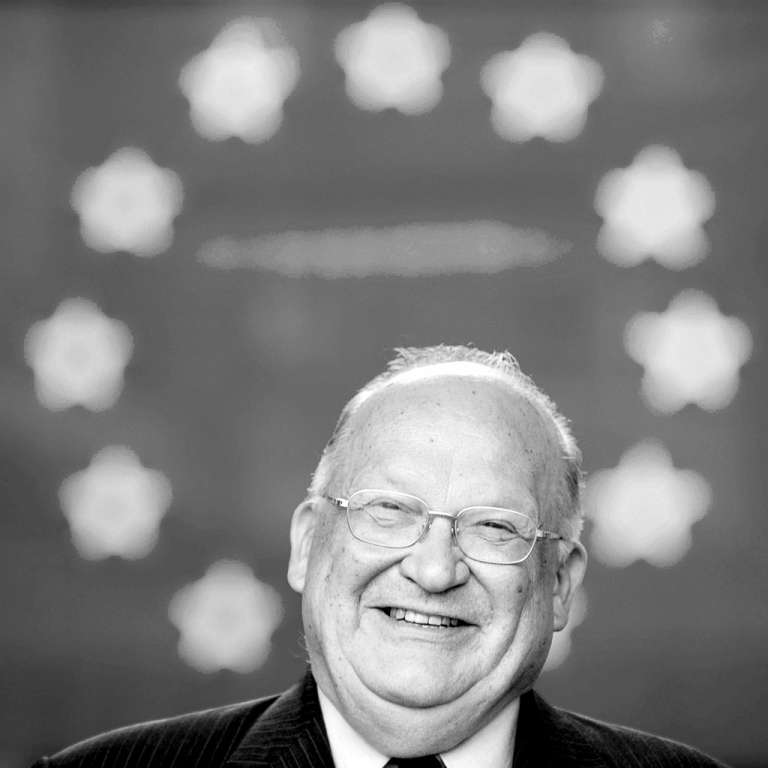25
JEAN-LUC DEHAENE
BELGIUM
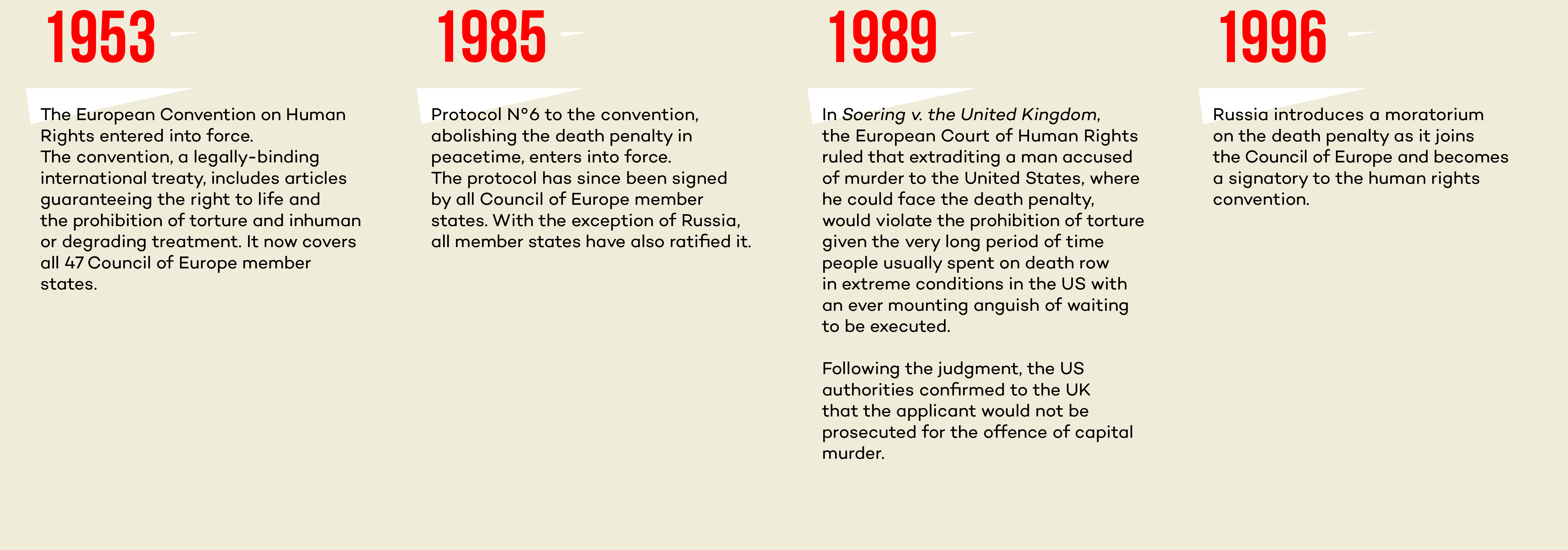
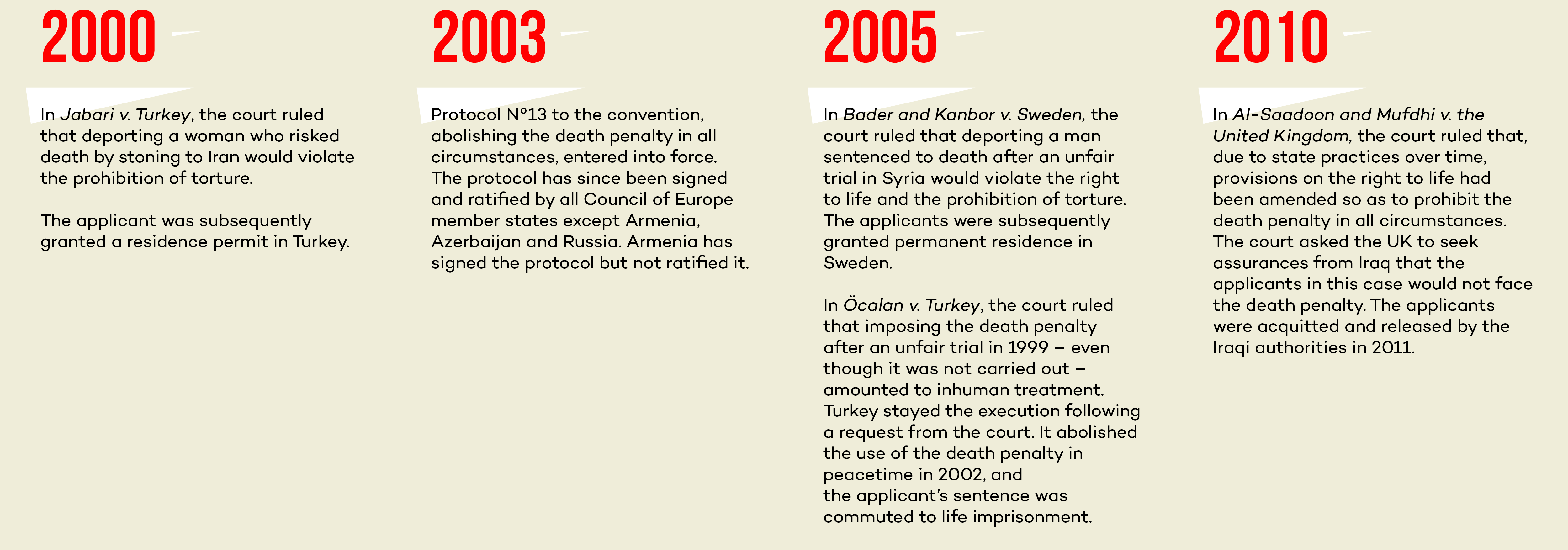
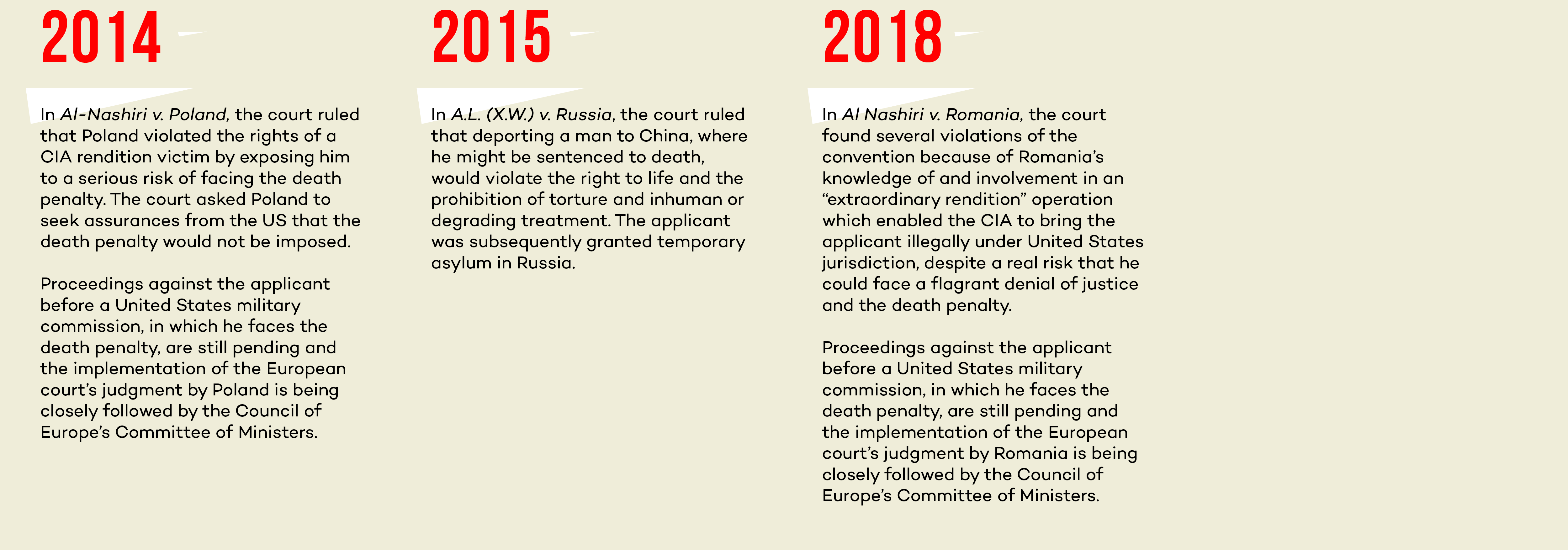
Jean-Luc Dehaene is a politician member of the CD&V party (Flemish Christian Democratic Party, member of the European People's Party). Belgian Prime Minister from 1992 to 1999, he was vice-president of the European Convention which negotiated the European Constitutional Treaty (ultimately rejected in 2005). He is known for his Europeanism, and respected as a fierce opponent of capital punishment, which he worked to abolish in his country, while heading his government.
As far as abolition is concerned, the political parties provide the impetus at the institutional level. The socialists, of course, but also the Christian Democrat movement through the intercession of its great abolitionists: Gaston Thorn in Luxembourg, Dries van Agt in the Netherlands and Jean-Luc Dehaene in Belgium. As for the founding fathers of Europe - Konrad Adenauer, Alcide de Gasperi,... - at the head of the governments of the states that took part in abolishing the death penalty just after the Second World War, they too were Christian democrats. The strong Christian values in Europe had a political influence on the abolition of the death penalty.
Belgium had not executed for a very long time, but it was in fact a country considered as a suspect in case of an extradition request. What would legally prevent it from resuming executions? The late retention of capital punishment in the Penal Code sometimes caused complications. For example, some countries, such as Italy, refuse to extradite criminals to Belgium as long as they are, even theoretically, risking their lives there. Moreover, it is a total mark of infamy for the convicted, with the complete loss of their civil rights and the publication of the sentence in the Grand-Place of Brussels and at the location of their crime. To resolve these contradictions, on September 13, 1991 the Belgian government adopted a bill to abolish the death penalty.
In November 1995, the Council of Ministers adopted the preliminary draft law and in 1996 the parliamentarians voted for abolition. By adopting the law of July 10, 1996 abolishing the death penalty and modifying sentences, Belgium became an abolitionist country. The bill was adopted by 129 votes to 13 in the House of Representatives. This plebiscite shows the formality of such a procedure, which had nevertheless become necessary to integrate or remain at the centre of the game of European nations. On August 1, the law promulgated by King Albert II was published in the Official Journal, Le Moniteur.
« Capital punishment was removed from our penal code on the initiative of Jean-Luc Dehaene, and him alone, in order to bring us into line with European laws1. »
To complete this process and bring it in line with European standards, the repeal was written into the Constitution in 2005. The constituent power inserted Article 14 bis. It definitively abolishes the death penalty thanks to the adoption, by the House and the Senate, of the "Revision of Article 14 of Title II of the Constitution with a view to abolishing the death penalty". Since this abolition, Belgium participates in European bodies against the death penalty. On December 8, 1998 Belgium ratified the Second Optional Protocol to the International Covenant on Civil and Political Rights aiming at the abolition of the death penalty, and most importantly, on December 10, 1998 Belgium ratified the Additional Protocol No. 6 to the Convention for the Protection of Human Rights and Fundamental Freedoms concerning the abolition of the death penalty. The protocol became law in Belgium on January 1, 1999. On May 3, 2002 Protocol No. 13 to the European Convention on Human Rights concerning the abolition of the death penalty in all circumstances was opened for signature. It was ratified on October 1, 2003.
Belgium hosted the 7th World Congress Against the Death Penalty in 2019, a congress initiated by Ensemble Contre la Peine de Mort (ECPM).
Marie Bardiaux-Vaïente
[1] Stefaan Declerck (1951-), Minister of Justice in the so-called 'Dehaene II' government.
- BOOK
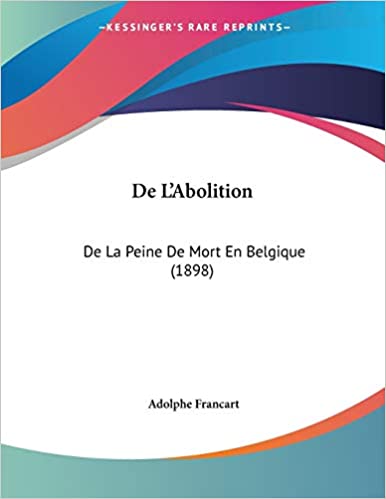
Ending the death penalty
Author: Adolphe Francart
Publication Date: 1898
Edited by: Kessinger Publishing
- movie

The Widow's Journey
Directed by: Philippe Laît
Genre : Drama
Release date: 2008
An executioner and his colleagues question the integrity of their trade in this historical drama inspired by true events. In March 1918, after fifty years of refusing to apply the death penalty, the King of Belgium decides that a recent criminal case requires the death penalty - a man who has been convicted of killing his pregnant wife. However, as it has been decades since Belgium has executed a criminal, the state does not have the necessary tools, and the king appeals to France to lend him a guillotine and a man who knows the handle. Deibler, considered one of the most skilful executioners in France, was sent to Belgium with a guillotine to do the job, accompanied by his associates, Lieutenant Vinel, Corporal Thabar and Jules Pasquier. However, on their way to Belgium, traversing the battlefields of World War I, Deibler and his friends find themselves torn by the ethics of the case as citizens of the two nations discuss political and moral issues. related to the death penalty.
- video


